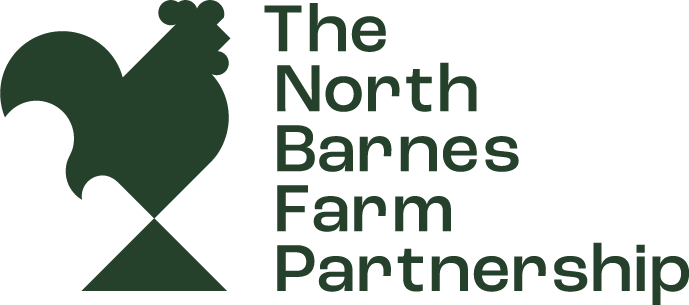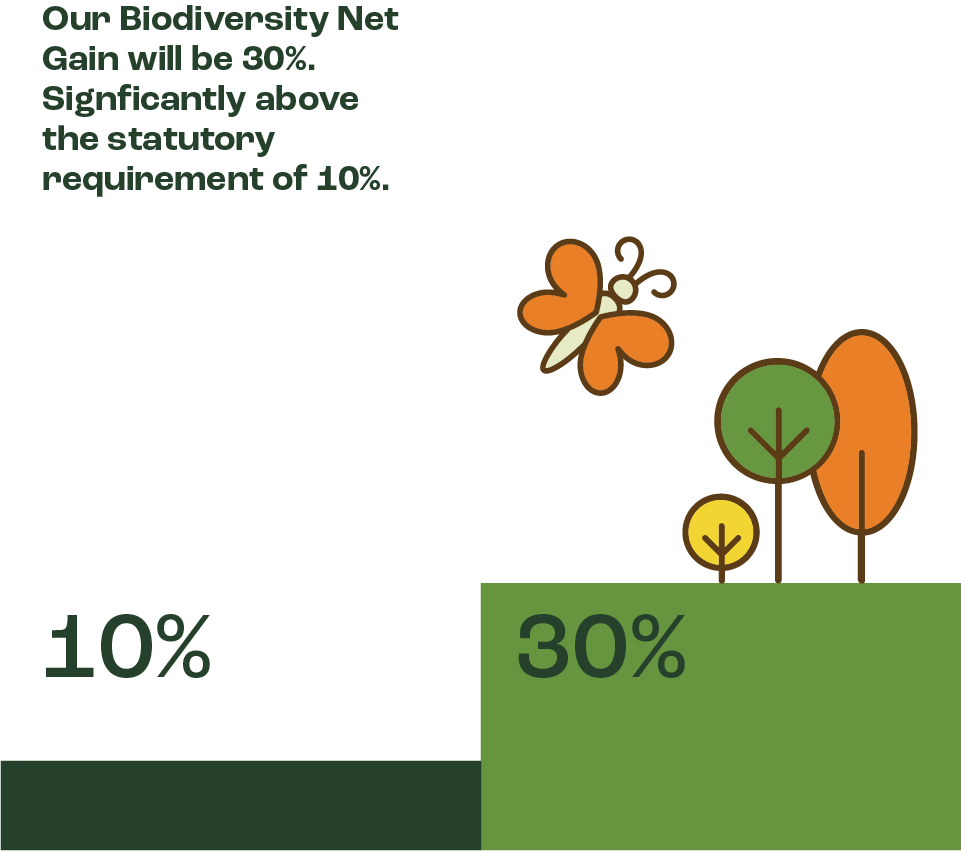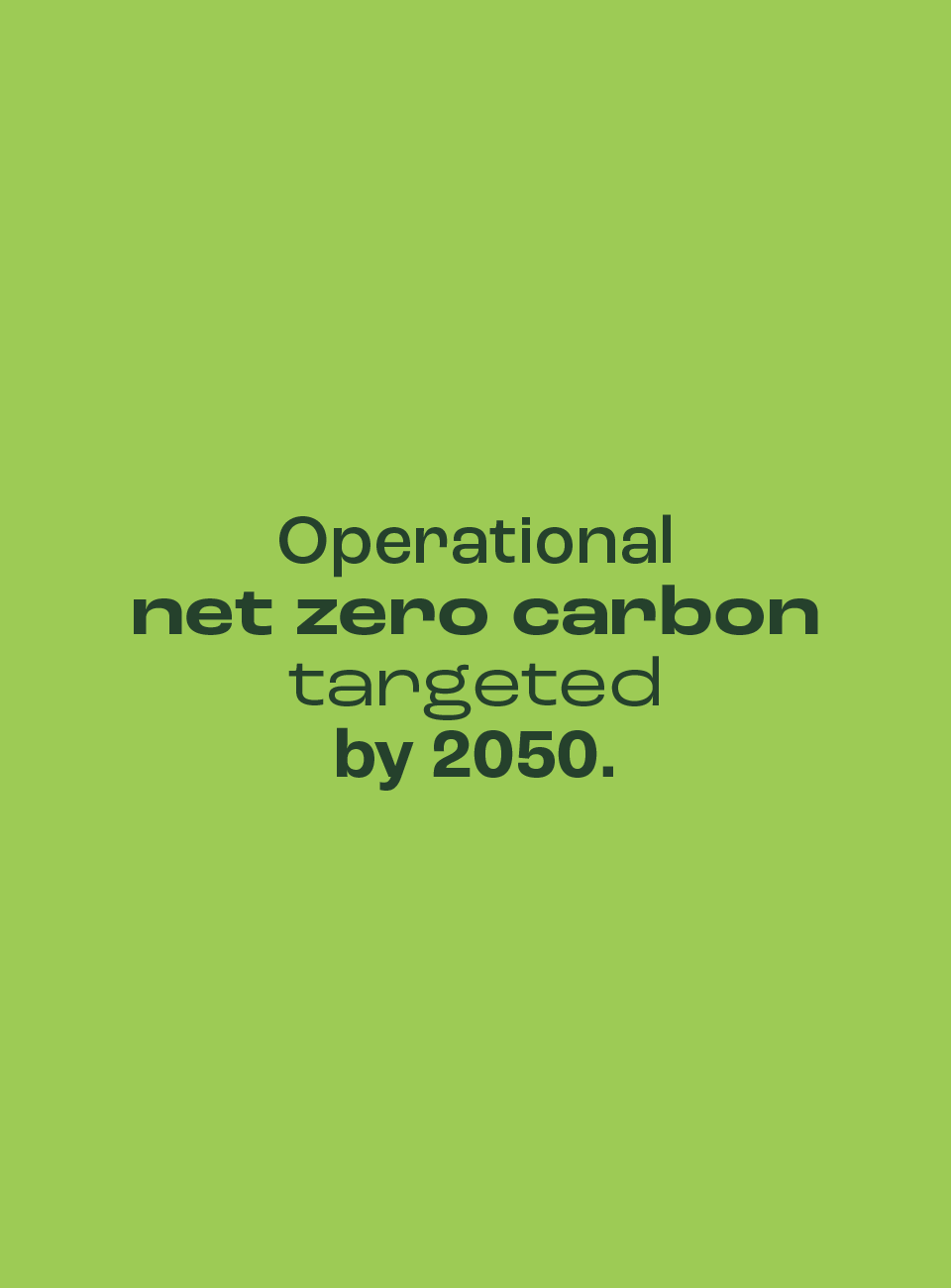
Protect. Restore. Re-wild.
We know that development needs to make sure that wildlife is protected and enhanced. Agricultural fields do not always help wildlife thrive, due to pesticide use and cultivation of monocultural crops.
At North Barnes Farm we have an exciting opportunity to re-energise and re-generate this farmland, by bringing forward a plan that works with the existing ecology. All hedgerows, ancient woodland and waterways will be retained, enhanced and preserved. By doing this and retaining 60% of the land for species rich green spaces we can achieve a c.30% Biodiversity Net Gain, which significantly exceeds both Government and Lewes’ stated targets.
The farmland at North Barnes Farm, like so much of it across the UK, has long been used for mass food production and now suffers from this and our reliance on pesticides, despite improvements to practices in recent years. Over time the quality of the soil has worsened, hedgerows have been removed, and habitats destroyed.
Stand on one of the many public footpaths, and you’ll be struck by the deafening silence.
Devoid of birdsong, chirping insects, bat flights and hedgerow inhabitants - this is the consequence of the current way of doing things.
Land use
Early ecological initiatives
Working with the landowner, the tenant farmer and local partners we can deliver early ecological initiatives, that are not dependent on whether this site is allocated in the Local Plan, to start improving the waterways and existing green infrastructure.
The creation of a new community at North Barnes Farm would allow us to finish the job, protecting the environment and enhancing biodiversity in perpetuity.
Changing farming practices to bring environmental and social benefit
We have put small scale regenerative farming and community food production at the heart of our plans for North Barnes Farm. We will repair and re-wild the landscape, restoring biodiversity and rebuilding ecological value for generations to come.
Almost 21 hectares (the equivalent of 29 football pitches) of space for market gardens, smallholdings of varying sizes, orchards and allotments have been set aside to create a thriving food hub that will bring environmental, social and economic benefits to the local community.
Our plan will bring people closer to the source of their food and generate opportunities to reconnect people of all ages with gardening and nature. It will bring multiple mental and physical health benefits, creating a local food supply chain which supports local businesses, increases food security and creates a circular economy.
The benefits of a food hub
A processing and distribution plant for preserves, juices and herbs
A community kitchen facility for cooking locally produced meals
Composting or anaerobic digestion of local food waste
Education for younger children, those with special needs and opportunities for older people to socialise
Employment opportunities across a range of industries
Development of specialist skills and knowledge
Regenerative farming methods
By adopting regenerative farming methods that improve soil health and its ability to respond to the effects of climate change from the outset, food can be produced whilst improving ecology, increasing biodiversity (read more about biodiversity here), sequestering carbon and improving air and water quality too.
North Barnes Farm food hub can become a model for future new settlements, with food and farming at their heart, across the UK.
Our climate and energy commitments
New development doesn’t have to be bad for the environment. Through careful design and modern technology, we anticipate that North Barnes Farm will be operationally net zero carbon by 2050.
Localised and on-site energy generation
Significant natural planting and landscaping whilst also retaining existing hedgerows and woodlands
Homes designed for low-carbon living and built to last
Walkable neighbourhoods where the car is secondary to the human
Going beyond meeting basic requirements
Additionally, we’ll support measures to tackle the climate emergency through:
Better limits on embodied carbon emissions than policy requirements and standard industry practice
Embedding carbon reduction through all aspects of project decision-making, ensuring climate is at the heart of our proposals
Restoring nature throughout the new community
Supporting walking, cycling and public transport, including minimising the use of privately owned cars.
An eye on the future
Our plans are being prepared with one eye on the future. Emerging technologies which have the potential to further improve the sustainability of North Barnes Farm, such as modular housing and modern methods of construction (MMC), micro-grids and vertical farming, will all be considered for inclusion in our plans as their credentials are established.















